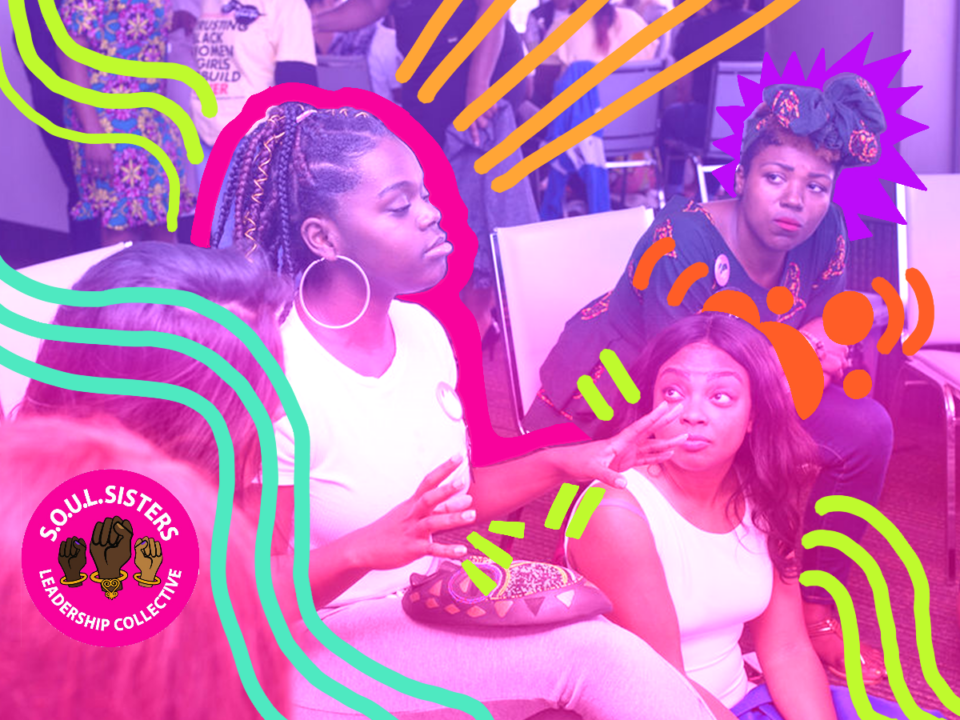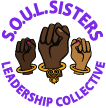
For this installment of Youth Justice, we’re sharing an essay from our NYC Youth Organizer, Afia! Afia has worked with S.O.U.L. while navigating her way through school toward building her career. Frequent visitors to our social media may remember her as one of the talented panelists we had when speaking with the Vera Institute about Expanding Fair Access to the Victim Compensation Fund or courtside after a lively discussion on ending girls’ incarceration. We appreciate her labor in consistently crafting thoughtful responses and feedback that draws from her lived experience and deep commitment to social justice. Today we’re sharing an essay she wrote about the need for counselors over police within schools originally written during her time in college.
Counselors Not Cops: Why should counselors be in NYC schools instead?
The presence of counselors in the NYC school system would be an essential service for the student body. However, there are more cops than counselors in schools. The presence of the NYPD is a deterrent factor to students feeling less protected in schools and thriving academically. In addition, police presence exposes students to the school-to-prison pipeline. Due to this exposure, more counselors should be implemented in schools, as the NYPD is not professionally trained to respond to students in a crisis.
Who do students confide in at school? Is it the school’s counselor or the school safety guard? Some people feel that police presence in NYC schools is necessary, but studies can show otherwise. The police can make students feel less safe in school, impede learning, and push students out of school and into prison. There are more cops in schools compared to counselors in NYC schools, which is an issue. Why is the punishment of youth’s behavior prioritized over the care and support of youth? This essay will display why counselors instead of cops should be in NYC schools.
One can see that counselors should be in NYC schools instead of cops because students feel less safe in school with police presence. Police officers scrutinize BIPOC students (Black, Indigenous, and People of Color) when they step on school campuses by their demeanor, attire, language, and the way they respond to authority. Police act as an extension of the Prison Industrial Complex – their presence within schools does not support youth’s growing ability to handle conflict and avoid harm.
According to the National Association of School Psychologists, “the presence of metal detectors, security cameras, and security guards makes kids of color feel less safe in school “physically and psychologically.”(Gabor, 2020) The NYPD’s presence in a school environment can also trigger past experiences students encounter in their communities, so counselors in a school environment are essential support to their cognitive development. The NYPD is not professionally trained to respond to the student body in conflict, and oftentimes increases harm rather helps students avoid it. This evidence demonstrates why students feel less safe in schools.
One can see that counselors should be in NYC schools instead of cops because police presence can impede students’ ability to focus on learning. Due to NYPD implementation in schools as a safety net instead of counselors, students feel intimidated, harassed, and overwhelmed by their company. As a result, students become distracted, affecting their academic performance. For example, The U.S. Department of Education recently reported determining the number of mental health staff in schools. It stated, “A key finding is that schools are under-resourced, and students are over-criminalized.” (Whitaker et al., 2019)
Additionally, the Covid-19 pandemic had students on lockdown for months. Students suffer from increased anxiety and depression during an ongoing pandemic, which can also impede learning. This kind of trauma is most beneficial from meditation by educators and counselors, not the police. (Cabanas & Terenzi, 2017) This evidence speaks to how police presence can impede students’ learning.
One can see why counselors should be in schools instead of cops, given that interactions between police and students push students out of school and into prison. Moreover, when a cop responds to a student, their response is from a criminal perspective, while a social worker’s response would be from a social-emotional perspective. For example, The Center for Popular Democracy states, “New York City schools feed young black and Latino youth into a school-to-prison pipeline by leveling criminal punishments on students for small infractions and normal youthful behavior.” (Foster & Terenzi, 2021) These hostile exchanges can leave students with a sense of not belonging. When students get treated like a criminal, they will begin to exhibit the behavior of one. If students are treated like criminals, they have little use to voluntarily participate in these negative interactions by attending school regularly. This evidence shows how police presence in NYC schools can expose students to the school-to-prison pipeline.
“When fights break out in schools, police are the first called, but what about guidance counselors and social workers? What about restorative services instead?” (Donaldson, 2021) A question a high school student, Benjamin Boateng, posed. Now think about that. Ultimately, the NYPD’s presence can make students feel less protected in schools, delay their learning, and introduce them to the school-to-prison pipeline. The NYPD is not adequately trained to support students, so counselors must be put into practice. Overall, the student body would flourish if they had better restorative justice resources in academic settings.
References
Whitaker, A., Torres-Guillen , S., Morton, M., Jordan , H., Coyle, S., Mann, A., & Sun, W.-L. (2019, April 9). Cops and no counselors: How the lack of school mental health staff is harming students. ACLU of Mississippi. Retrieved May 20, 2022, from
https://www.aclu-ms.org/en/publications/cops-and-no-counselors-how-lack-school-menta l-health-staff-harming-students
Cabanas , R., & Terenzi, K. (2017, November 22). For Safer City Schools, more counselors, fewer cops. Gotham Gazette. Retrieved May 20, 2022, from
https://www.gothamgazette.com/opinion/7333-for-safer-city-schools-more-counselors-fe wer-cops
Gabor, A. (2020, June 24). Why New York City must put educators and counselors, not cops, in charge of school discipline. Gotham Gazette. Retrieved May 20, 2022, from https://www.gothamgazette.com/opinion/9529-new-york-city-educators-counselors-not-c ops-school-discipline
Donaldson, S. (2021, August 30). NYC is moving almost 5000 school safety agents out of the NYPD. Will that help calm fears about policing in schools? City & State NY. Retrieved May 20, 2022, from
https://www.cityandstateny.com/policy/2021/08/nyc-moving-almost-5000-school-safety-a gents-out-nypd-will-help-calm-fears-about-policing-schools/184973/
Foster, K., & Terenzi, K. (2021, July 6). New York City Schools’ discriminatory and damaging school-to-prison pipeline. City & State NY. Retrieved May 20, 2022, from
https://www.cityandstateny.com/opinion/2017/04/new-york-city-schools-discriminatory-an d-damaging-school-to-prison-pipeline/182293/
